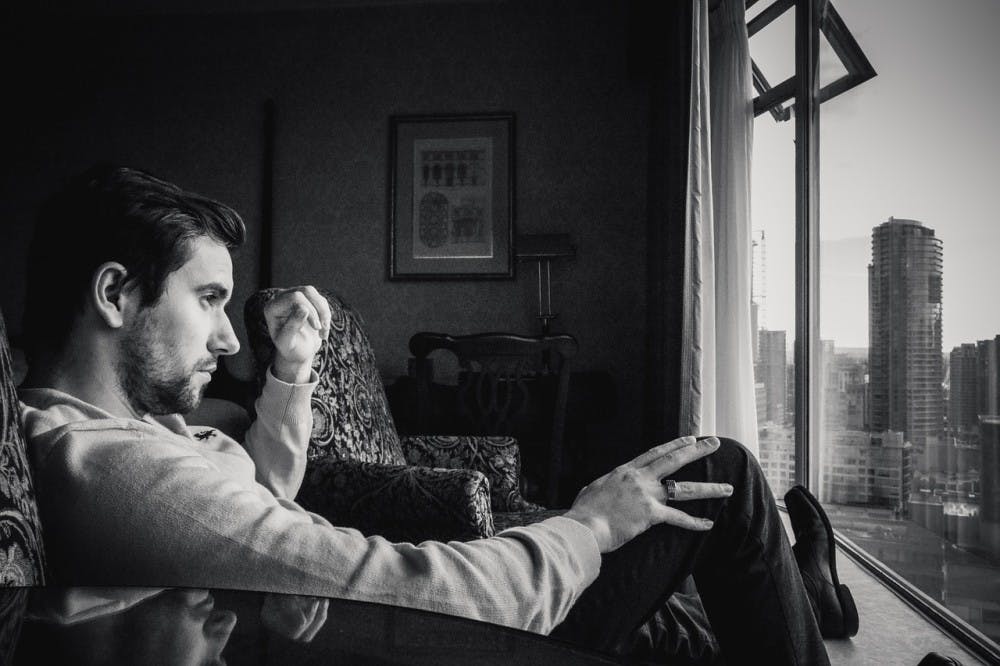Meet the Professor Who Teaches a 70-Year-Long Class Called 'Aging and Dying'

Photo by Pixabay / Public Domain
April 18, 2017 at 6:51 pm
Some students struggle to sit through a 90-minute lecture. But what if the class went on for seventy years straight?
Professor Michael Keller of the Philosophy Department will be teaching an experimental class in fall of 2017 called “DEAD 469: Aging and Dying.” Keller joins the ranks of Penn professors who are renowned for teaching unconventional classes, such as Justin McDaniel and his highly anticipated "Existential Despair" class, also offered next fall. An unusually young tenured professor at the age of 27, Keller is fairly confident that he will live through the entirety of the class.
Since “Aging and Dying” is classified as a Benjamin Franklin Seminar, the class will be capped at around 18-20 people. No prerequisites are needed, save for a love of contemplating the construction of temporality and the inevitability of death. It will meet every week, beginning the second Tuesday of the fall 2017 semester and continue until the first Tuesday of the Fall 2087 semester.
Under the Button dot com spoke with Keller about his upcoming class. This interview has been edited for brevity.
Under the Button: What is the purpose of having a 70-year class?
Michael Keller: Oh well there’s lots of purposes for it. Again, I’d rather it be eighty years. A little background is that, in any class I teach, I’ll mention something about how aging is the arduous, painful, and ultimately meaningless process of degeneration that precedes our inevitable decease. And I’m shocked; for 90% of the students I mention this to, they haven’t thought much about it. And I think it’s not because students aren’t bright, they clearly are very bright, they’re just hyper-bright students who would rather not mull over the ephemerality of existence and the futility of our worldly toils.
UTB: What will a typical day of class be like?
MK:There will be no rules, except for that you must grow old during our 70 years together and you cannot leave. You are not technically required to die in class, but those who do expire before the end of the course will receive extra credit for their dedication to investigating the class objectives. There will be two bathroom breaks and 30 minutes to eat per day, that’s it. And we will sit and contemplate aging and death all together. That’s it. In silence.
Then we will have a very, very intense discussion. There will also be writing exercises. They will be in class, and they will all be hand-written. That is, until our joints begin to deteriorate and the arthritis sets it. And there will be home health aid escorts to take people home in the year 2087. Then you will leave the class, and you will have no homework, you will have no writing, no research, no projects, and almost no time left to experience life free from sustained fixation on mortality.
UTB: How will the class be graded?
MK: The class will be graded on about 75% participation and about 25% writing. You can’t miss a class—mostly because you will never leave but also because that's my class policy. Even if it’s a medical emergency, if you leave class you lose a whole letter grade. Because medical emergencies are fundamental to aging and death, it is absolutely critical that the whole class experience those processes of physical decline together and in real time.
UTB: Is there anything else you would like people to know about the class?
MK: I’m not looking for a particular type of student. I’m looking for a diverse class, I want nurses and engineers and Wharton and the College, and I don’t want all English majors or all Philosophy majors. I don’t want all seniors or all freshmen. I want to have a nice balance of gender. I’m looking for people who really want to spend many, many years simply sitting around, aging into decrepitude, examining our individual and collective insignificance, and pondering our trajectory towards nonexistence.